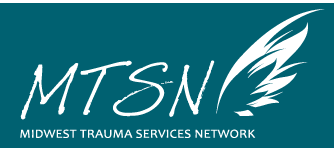Trauma Response
Posttraumatic Stress Management (PTSM) & Psychological First Aid (PFA)
The PTSM development team works closely with SAMHSA, FEMA, DHS and Red Cross to incorporate evidence-based and emerging practice models for psychological first aid and recovery phase protocols
PTSM has been developed through extensive field practice and research over the last 10 years in the US and abroad; the PTSM design and development include gender specific, developmentally specific, culturally and linguistically specific post-violence psychological intervention and stabilization protocols.
PTSM is a series of highly structured, school and community-based responses following a violent or other traumatic incident.
PTSM targets immediate reduction of traumatic stress response and violence reduction while augmenting coping, resiliency and community bonding.
PTSM focuses specifically on impacted children, youth their families and their support systems within the community
Psychological First Aid (PFA) and Skills for Psychological Recovery (SPR)
Robert Macy PHD and Frank Grijalva MSPH, MSCC are both nationally credentialed trainers of PFA and SPR. Psychological First Aid (PFA) and Skills for Psychological Recovery (SPR) are promising practices for disaster behavioral health response and recovery. Both PFA and SPR were developed by the National Center for PTSD and the National Child Traumatic Stress Network, as well as other individuals involved in coordinating and participating in disaster response and recovery.
PFA and SPR intervention strategies are intended for use with children, adolescents, parents and caretakers, families, and adults who are survivors or witnesses exposed to disaster or terrorism. PFA and SPR can also be provided to first responders and other disaster relief workers.
While grounded in the same foundations of disaster response and recovery, there are several differences between PFA and SPR. PFA is a supportive intervention for use in the immediate aftermath of disasters and terrorism. SPR is used in the weeks and months following disaster and trauma, after the period where PFA has been utilized or when more intensive intervention is needed. The delivery of PFA is defined in terms of days or weeks after a disaster (timing will depend on the circumstances of the post-disaster setting). SPR is intended to assist disaster survivors after safety, security, and other vital and immediate needs have been met and when the community is rebuilding. In some cases, SPR may be delivered one week after a disaster, as a follow up to the initial PFA response, and in other cases it may be appropriate to provide this assistance weeks, months, or even years after a major event. The timing will be partially dependent on how devastating the disaster was to community resources and infrastructure.
SPR places greater emphasis on teaching specific skills to meet survivor needs, as well as on follow-up to reinforce the use of these skills. PFA, in contrast, is often delivered in temporary settings where follow-up may not be possible.
Taken from https://www.nctsn.org/treatments-and-practices/psychological-first-aid-and-skills-for-psychological-recovery
